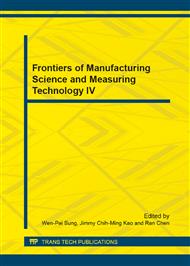p.1797
p.1801
p.1807
p.1812
p.1816
p.1820
p.1824
p.1829
p.1833
Weakness and Improvement of an Efficient Key Agreement Protocol
Abstract:
Xiao and Li proposed protocol XKAS and claimed it to be an efficient and secure two-party authenticated Diffie-Hellman key agreement protocol. In this letter, we show that the protocol is vulne- rable to a key-compromise impersonation attack. We also proposed XKAS+, which can withstand such attacks. The new protocol enjoys this property at the expense of a slight increase in computational workload with respect to the original version.
Info:
Periodical:
Pages:
1816-1819
Citation:
Online since:
August 2014
Authors:
Keywords:
Price:
Сopyright:
© 2014 Trans Tech Publications Ltd. All Rights Reserved
Share:
Citation:


